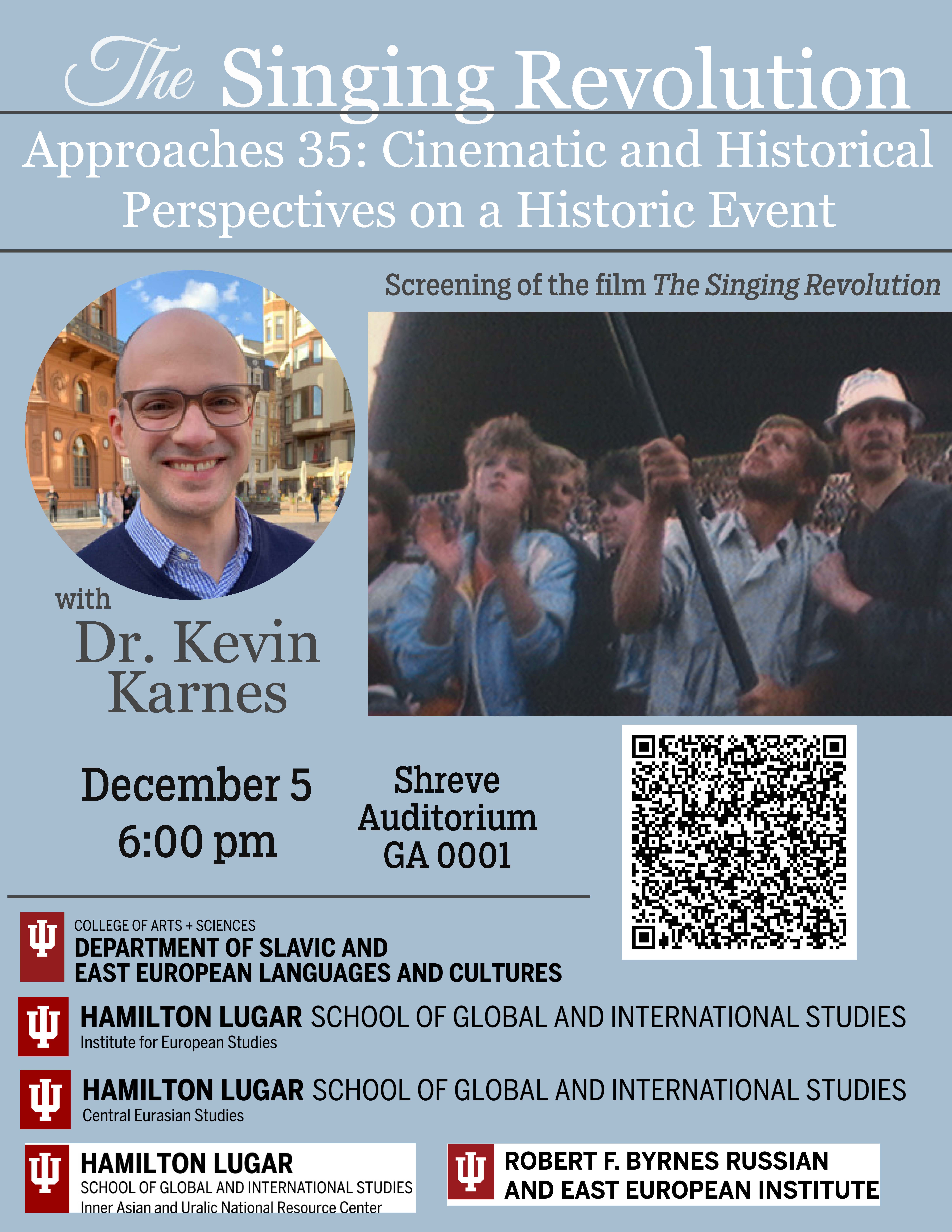The Singing Revolution Approaches 35: Cinematic and Historical Perspectives on a Historic Event was presented by Dr. Kevin C. Karnes, a musicologist who studies sounding expressions of identity, difference, and belonging in contemporary Eastern and Central Europe. His work aims to bridge the gap between archival and ethnographic research; thus, engaging in fields such as sound studies, anthropology, philosophy, and art history. Before screening the 2006 documentary, The Singing Revolution, Dr. Karnes gave a presentation on the Soviet-era histories of music festivals in Estonia, Latvia, and Lithuania. He traced critical moments in the history of these republics in their eventual paths towards nationhood, highlighting the importance of music festivals in the self-organization of local communities. His presentation concluded with a brief statement about how Soviet aspirations had co-opted the musical movement of these republics.
Following his presentation, the audience was introduced to The Singing Revolution, a documentary depicting the peaceful but vocal independence movement during the Estonian Soviet Socialist Republic, where mass protests involving the recitation of banned patriotic songs were used in defiance of the Kremlin. Following the film, Dr. Karnes led a Q&A about his presentation and the documentary.


